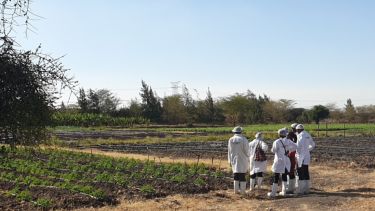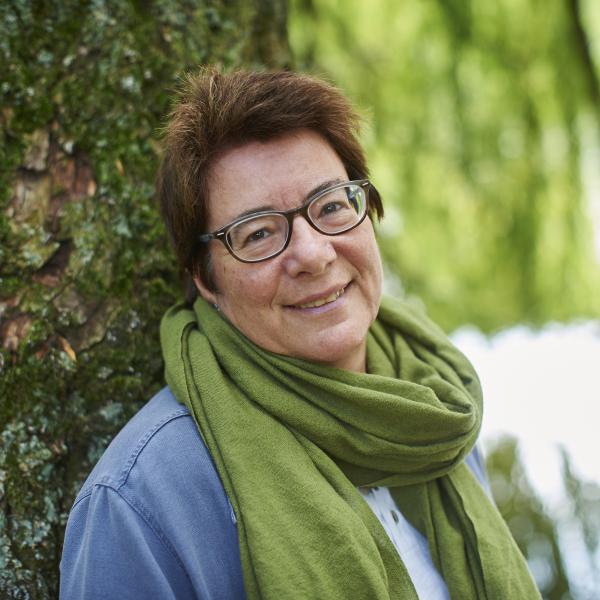A new project to improve access to energy in East Africa through innovative agrivoltaic technologies has been given a £1.4 million funding boost.
The initiative, which is being led by Professor Sue Hartley in the Department of Animal and Plant Sciences, has been funded as part of UKRI's Global Challenges Research Fund (GCRF) Collective Programme. It is a collaboration with the University of York, World Agroforestry (ICRAF) and other partners.
Access to energy is a widespread problem across East Africa, where 55% of the population still do not have reliable electricity.
Solar power is seen as a key way of addressing this, but traditional ground mounted arrays of solar panels put pressure on land that is also needed for other activities, such as growing crops.
Agrivoltaic systems combine the delivery of solar electricity, crop production, and rainwater harvesting on the same land area. Instead of being mounted close to the ground, arrays are constructed several meters high and with gaps between the arrays - enabling crops to be grown underneath.
Watch a talk by Dr Richard Randle-Boggis, a research associate on the project:
In locations with high light intensity, high temperature, and low rainfall, such as many places in East Africa, the productivity of crops grown beneath these elevated solar arrays can be significantly improved because shade from the panels creates a more favourable growing environment with reduced heat stress and water loss.
This more favourable environment for plants means the range of crops can be extended to higher-value ones, which can improve farmer incomes in disadvantaged rural communities. Crops may also be grown in locations previously unsuitable, further increasing food supplies and revenue sources.
Working with East African solar developers and agribusiness organisations, as well as non-governmental organisations, regional political organisations and local communities, the University of Sheffield team has identified case study sites in Kenya, Uganda and Tanzania where solar arrays are being installed and our interdisciplinary research can be conducted.
The Global Challenges Research Fund (GCRF) Collective Programme brings together a wide range of researchers and experts from across the UK and developing countries to generate innovative solutions to intractable development issues and contribute to enabling healthier and safer lives, sustainable development and prosperity for all.
The UKRI GCRF Collective Programme, is an investment of £147 Million across 18 calls designed to enhance the overall impact across UKRI’s six strategic GCRF Challenge portfolios in global health, education, sustainable cities, food systems, conflict and resilience. Research across these is contributing to realising the ambitions of the UK Government’s aid strategy and progressing the United Nation’s Sustainable Development Goals (SDG).
Professor Andrew Thompson, UKRI’s International Champion, said: “UKRI is proud to announce this initiative celebrating the spirit of international collaboration in research and innovation. The pandemic has irrefutably demonstrated that we are part of a global community and must work together to tackle global crises.
“This exciting Programme brings together diverse expertise from across the globe, ensuring that the voices of those most impacted are empowered to drive sustainable solutions for those most in need.
“Working in partnership with developing nations, the UK’s research and innovation system has a crucial role to play in finding innovative solutions to interlinked issues such as issues such as environmental disasters, extreme poverty and food security. These international development research projects announced today are essential to finding these solutions.”



